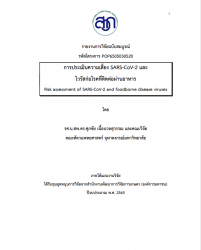
Author : -
Publishing Date : Nov 25, 2019
Over the past half century, computing has profoundly altered the ways stories are imagined and told. Immersive, narrative, and database technologies transform creative practices and hybrid spaces revealing and concealing the most fundamental acts of human invention: making stories.
The Digital Imaginary illuminates these changes by bringing leading North American and European writers, artists and scholars, like Sharon Daniel, Stuart Moulthrop, Nick Montfort, Kate Pullinger and Geof Bowker, to engage in discussion about how new forms and structures change the creative process. Through interviews, commentaries and meta-commentaries, this book brings fresh insight into the creative process form differing, disciplinary perspectives, provoking questions for makers and readers about meaning, interpretation and utterance. The Digital Imaginary will be an indispensable volume for anyone seeking to understand the impact of digital technology on contemporary culture, including storymakers, educators, curators, critics, readers and artists, alike.

Author : Adèle Langlois
Publishing Date : Aug 15, 2013
The sequencing of the entire human genome has opened up unprecedented possibilities for healthcare, but also ethical and social dilemmas about how these can be achieved, particularly in developing countries. UNESCO’s Bioethics Programme was established to address such issues in 1993. Since then, it has adopted three declarations on human genetics and bioethics (1997, 2003 and 2005), set up numerous training programmes around the world and debated the need for an international convention on human reproductive cloning.
Negotiating Bioethics presents Langlois' research on the negotiation and implementation of the three declarations and the human cloning debate, based on fieldwork carried out in Kenya, South Africa, France and the UK, among policy-makers, geneticists, ethicists, civil society representatives and industry professionals. The book examines whether the UNESCO Bioethics Programme is an effective forum for (a) decision-making on bioethics issues and (b) ensuring ethical practice. Considering two different aspects of the UNESCO Bioethics Programme – deliberation and implementation – at international and national levels, Langlois explores:
how relations between developed and developing countries can be made more equal
who should be involved in global level decision-making and how this should proceed
how overlap between initiatives can be avoided
what can be done to improve the implementation of international norms by sovereign states
how far universal norms can be contextualized
what impact the efficacy of national level governance has at international level
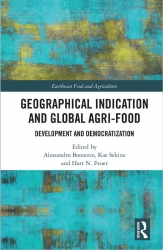
Author : Alessandro Bonanno, Kae Sekine, Hart N. Feuer
Publishing Date : Jun 25, 2019
This book addresses the relevance of geographical indication (GI) as a tool for local and socio-economic development and democratization of agri-food, with case studies from Asia, Europe and the Americas.
A geographical indication is a sign used on products that have a specific geographical origin and possess qualities or a reputation that are due to that origin. It provides not only a way for businesses to leverage the value of their geographically unique products, but also to inform and attract consumers. A highly contested topic, GI is praised as a tool for the revitalization of agricultural communities, while also criticized for being an instrument exploited by global corporate forces to promote their interests. There are concerns that the promotion of GI may hamper the establishment of democratic forms of development. The contributing authors address this topic by offering theoretically informed investigations of GI from around the world. The book includes case studies ranging from green tea in Japan, olive oil in Turkey and dried fish in Norway, to French wine and Mexican Mezcal. It also places GI in the broader context of the evolution and trends of agri-food under neoliberal globalization.
The book will be of interest to researchers, policy makers and students in agri-food studies, sociology of food and agriculture, geography, agricultural and rural economics, environmental and intellectual property law, and social development.

Author : Azam, Monirul
Publishing Date : Mar 20, 2023
"Across the world, developing countries are attempting to balance the international standards of intellectual property concerning pharmaceutical patents against the urgent need for accessible and affordable medicines. In this timely and necessary book, Monirul Azam examines the attempts of several developing countries to walk this fine line. He evaluates the experiences of Brazil, China, India, and South Africa for lessons to guide Bangladesh and developing nations everywhere. Azam's legal expertise, concern for public welfare, and compelling grasp of principal case studies make Intellectual Property and Public Health in the Developing World a definitive work. The developing world is striving to meet the requirements of the World Trade Organization's TRIPS Agreement on intellectual property. This book sets out with lucidity and insight the background of the TRIPS Agreement and its implications for pharmaceutical patents, the consequences for developing countries, and the efforts of certain representative nations to comply with international stipulations while still maintaining local industry and public health. Azam then brings the weight of this research to bear on the particular case of Bangladesh, offering a number of specific policy recommendations for the Bangladeshi government—and for governments the world over. Intellectual Property and Public Health in the Developing World is a must-read for public policy-makers, academics and students, non-governmental organizations, and readers everywhere who are interested in making sure that developing nations meet the health care needs of their people. "

Author : Bryan Mercurio, Daria Kim
Publishing Date : Feb 17, 2017
This collection reflects on contemporary and contentious issues in international rulemaking in regards to pharmaceutical patent law. With chapters from both well-established and rising scholars, the collection contributes to the understanding of the regulatory framework governing pharmaceutical patents as an integrated discipline through the assessment of relevant laws, trends and policy options. Focusing on patent law and related pharmaceutical regulations, the collection addresses the pressing issues governments face in an attempt to resolve policy dilemmas involving competing interests, needs and objectives. The common theme running throughout the collection is the need for policy and law makers to think and act in a systemic manner and to be more reflective and responsive in finding new solutions within and outside the patent system to the long-standing problems as well as emerging challenges
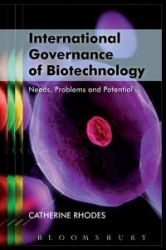
Author : Catherine Rhodes
Publishing Date : Apr 29, 2014
The significant media coverage recently given to issues such as the international impacts of biofuel production policies, advances in synthetic biology, and the ethical implications of research involving embryonic stem cells, is indicative of the high-level of interest - among policy-makers, academics and the public - in the biotechnology revolution, its applications, impacts and control. There is also significant interest in international regulatory processes as a form of governance, and international regulation is a vital part of efforts to manage the impacts of the biotechnology revolution, since many of these are global in their nature. The book establishes the need for international regulation of biotechnology, identifying the roles it needs to play, and the issues it needs to cover. Having outlined the importance of coherence to the effective functioning of international regulatory sets, a model of coherent international regulation is established, against which the biotechnology regulations can be assessed. This book approaches the subject from an international relations perspective but also draws from, and will contribute to, literature in the fields of international law, global governance, technological governance, and science-society relations.
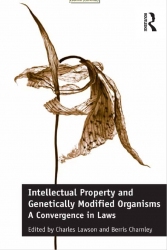
Author : Charles Lawson, Berris Charnley
Publishing Date : Mar 09, 2016
Taking a global viewpoint, this volume addresses issues arising from recent developments in the enduring and topical debates over Genetically Modified Organisms (GMOs) and their relationship to Intellectual Property (IP). The work examines changing responses to the growing acceptance and prevalence of GMOs. Drawing together perspectives from several of the leading international scholars in this area, the contributions seek to break away from analysis of safety and regulation and examine the diversity of ways the law and GMOs have become entangled. This collection presents the start of a much broader engagement with GMOs and law. As GMO technology becomes increasingly more complex and embedded in our lives, this volume will be a useful resource in leading further discussion and debate about GMOs in academia, in government and among those working on future polic

Author : Correa, Carlos M., Hilty, Reto M.
Publishing Date : Mar 20, 2023
This open access book is the outcome of a Global Forum on Innovation, Intellectual Property and Access to Medicines held in December 2019 at the Max Plank Instititute in Munich, organised by the South Centre and the Max Plank Institute. The academics and experts from international organisations participating have contributed chapters to this book. The book is for policy makers (in Ministries of Health, Ministries of Trade, Ministries of Foreign Affairs, patent offices), but also relevant for academics (law, trade, public health), on the flexibilities available in the Agreement on Trade Related Aspects of Intellectual Property Rights (TRIPS) of the World Trade Organization to promote access to medicines.

Author : David Koepsell
Publishing Date : Apr 29, 2014
This book defines 'nanowares' as the ideas and products arising out of nanotechnology. Koepsell argues that these rapidly developing new technologies demand a new approach to scientific discovery and innovation in our society. He takes established ideas from social philosophy and applies them to the nanoparticle world. In doing so he breaks down the subject into its elemental form and from there we are better able to understand how these elements fit into the construction of a more complex system of products, rules and regulations about these products.Where existing research in the field has tended to focus on potential social harm, Koepsell takes a different approach by looking at ways in which developments in distributed design and fabrication can be harnessed to enable wealth creation by those with good ideas but no access to capital. He argues that the key challenge facing us is the error implicit in current intellectual property regimes and presents new modes of relating inventors to artifacts in this new context.In conclusion he offers contractual models which he believes encourage innovation in nano-media by embracing open source and alternative means of protection for innovators.

Author : Donal O'Connell
Publishing Date : Apr 15, 2016
A fundamental change in the way organisations approach innovation is taking place. It is driven by the simple realisation that not all the smart people work for just one organisation. Few intellectual property books concentrate on external innovation and more particularly on dealing with external inventors and handling their inventions. Harvesting External Innovation begins by examining the broad subject of innovation, stressing the need to understand its forms and phases, ways and means to encourage innovation. It then addresses the growing phenomenon of external innovation. A number of different approaches to engaging with the external innovator community are then considered, together with real life case studies. Harvesting External Innovation discusses in depth how best to handle intellectual property matters, how to actually work with these external inventors and how to handle their inventions, including a suggested process and check list.
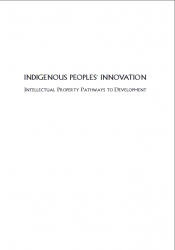
Author : Drahos, Peter; Frankel, Susy
Publishing Date : Mar 22, 2023
Traditional knowledge systems are also innovation systems. This book analyses the relationship between intellectual property and indigenous innovation.
123NextLast

